6 start with B start with B
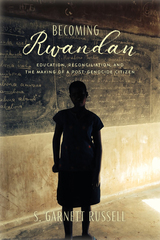
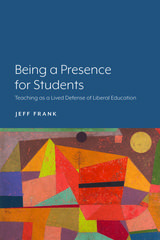
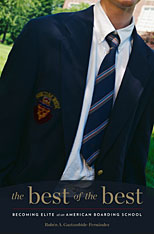
For two years, Rubén Gaztambide-Fernández shared the life of what he calls the “Weston School,” an elite New England boarding school. He sat in on classes, ate meals in the dining halls, cheered at sporting events, hung out in dorms while students baked cookies or celebrated birthdays. And through it all, observing the experiences of a diverse group of students, conducting interviews and focus groups, he developed a nuanced portrait of how these students make sense of their extraordinary good fortune in attending the school.
Vividly describing the pastoral landscape and graceful buildings, the rich variety of classes and activities, and the official and unofficial rules that define the school, The Best of the Best reveals a small world of deeply ambitious, intensely pressured students. Some are on scholarship, others have never met a public school student, but all feel they have earned their place as a “Westonian” by being smart and working hard. Weston is a family, they declare, with a niche for everyone, but the hierarchy of coolness—the way in which class, race, sexism, and good looks can determine one’s place—is well known.
For Gaztambide-Fernández, Weston is daunting yet strikingly bucolic, inspiring but frustratingly incurious, and sometimes—especially for young women—a gilded cage for a gilded age. “Would you send your daughter here?” one girl asks him, and seeing his hesitation asks, “Because you love her?”
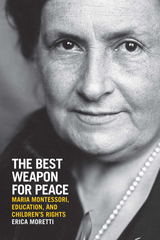
Using newly discovered primary sources, Moretti examines Montessori’s lifelong pacifist work, including her ultimately unsuccessful push for the creation of the White Cross, a humanitarian organization for war-affected children. Moretti shows that Montessori’s educational theories and practices would come to define chilren’s rights once adopted by influential international organizations, including the United Nations. She uncovers the significance of Montessori’s evolving philosophy of peace and early childhood education within broader conversations about internationalism and humanitarianism.
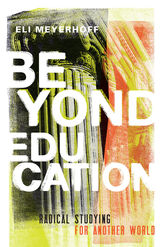
A bold call to deromanticize education and reframe universities as terrains of struggle between alternative modes of studying and world-making
Higher education is at an impasse. Black Lives Matter and #MeToo show that racism and sexism remain pervasive on campus, while student and faculty movements fight to reverse increased tuition, student debt, corporatization, and adjunctification. Commentators typically frame these issues as crises for an otherwise optimal mode of intellectual and professional development. In Beyond Education, Eli Meyerhoff instead sees this impasse as inherent to universities, as sites of intersecting political struggles over resources for studying.
Meyerhoff argues that the predominant mode of study, education, is only one among many alternatives and that it must be deromanticized in order to recognize it as a colonial-capitalist institution. He traces how key elements of education—the vertical trajectory of individualized development, its role in preparing people to participate in governance through a pedagogical mode of accounting, and dichotomous figures of educational waste (the “dropout”) and value (the “graduate”)—emerged from histories of struggles in opposition to alternative modes of study bound up with different modes of world-making.
Through interviews with participants in contemporary university struggles and embedded research with an anarchist free university, Beyond Education paves new avenues for achieving the aims of an “alter-university” movement to put novel modes of study into practice. Taking inspiration from Black Lives Matter, Occupy Wall Street, and Indigenous resurgence projects, it charts a new course for movements within, against, and beyond the university as we know it.
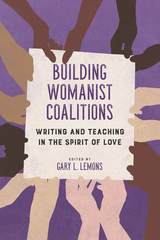
READERS
Browse our collection.
PUBLISHERS
See BiblioVault's publisher services.
STUDENT SERVICES
Files for college accessibility offices.
UChicago Accessibility Resources
home | accessibility | search | about | contact us
BiblioVault ® 2001 - 2024
The University of Chicago Press









